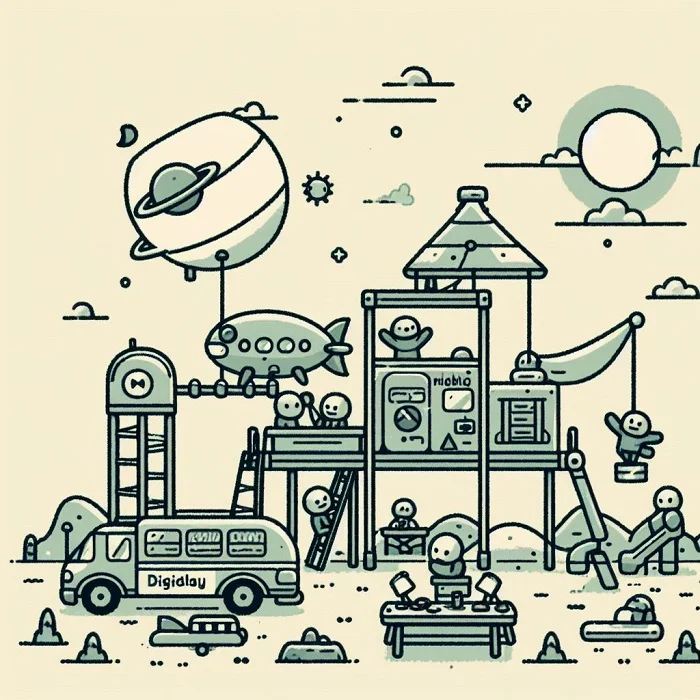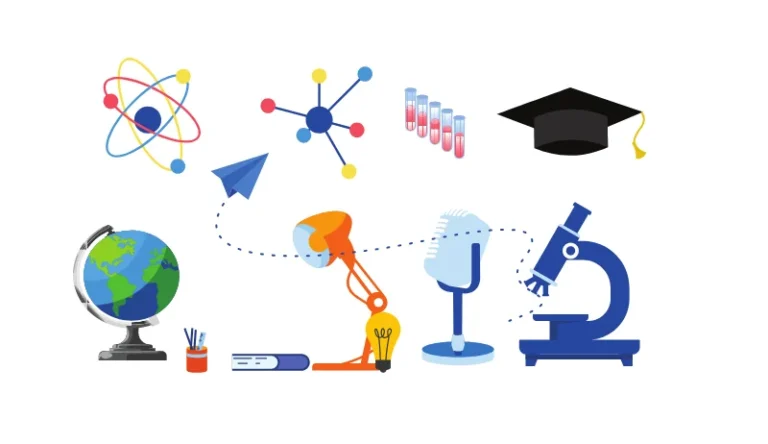In today’s fast-paced world, STEM are not just pillars of innovation but crucial components that imbue our everyday tasks with efficiency and creativity. Applying STEM concepts to daily life can revolutionize how we approach common challenges, leading to smarter decisions and improved quality of life.
Whether employing mathematical principles to optimize household budgeting or understanding the physics of energy conservation to reduce utility bills, integrating STEM knowledge empowers individuals to navigate the complexities of the contemporary world with greater competence. So, let’s explore how thinking outside the box with STEM concepts can elevate your daily routines and experiences.
STEM in Daily Life Activities
STEM in daily activities are like hidden instruments that orchestrate efficiency and innovation within the regular rhythms of our lives, leading to solutions that simplify tasks and enhance how we interact with the world around us.

Tech-Savvy Hacks
Recent statistics show that nearly three-quarters of Americans assert technology has positively impacted society. Smartphones, once considered a luxury, are now pivotal in the daily lives of 85% of Americans, serving as a tool for everything from navigation to budget tracking, highlighting the profound connection between technology and the enhancement of everyday life.
According to a study, using automation and technology in the home is projected to save individuals, on average, nearly 2 hours per day by 2025. Through engineering principles and technology, STEM provides innovative solutions that streamline tasks, making efficiency an aspiration and a tangible reality in our everyday lives.
Engineering Your Life
Engineering is all about finding solutions to problems; our daily routines are no exception. Applying the engineering design process can optimize tasks in various aspects of life, from meal planning based on nutritional principles to organizing a closet using spatial reasoning skills. Understanding these STEM concepts, such as force and motion, allows us to employ strategies for packing suitcases efficiently or quickly rearranging furniture.
Architecture and design principles can transform living spaces into functional and aesthetically pleasing environments. We can apply principles of structural engineering to reinforce the stability and durability of our homes, leading to safer living conditions. Furthermore, utilizing STEM coding concepts enables individuals to create websites or automate mundane tasks with simple programs.
The Math of Everyday Life
Mathematics is not confined to classrooms and textbooks; it seamlessly integrates into our everyday lives, often without us noticing. From the algorithms that influence the traffic flows on our commutes to the geometric principles behind the artful design of our favorite coffee mugs, math is omnipresent.
A Georgetown University Center on STEM Education and the Workforce report estimates that nearly 80% of jobs by 2030 will require some mathematical knowledge, underscoring math’s integral role in the workforce. Statistical analysis is routinely used in our decision-making processes; for instance, we might use probability to assess the risk of an investment or compare the cost-effectiveness of different products based on their lifespan and utility.
Benefits of STEM Integration
STEM concepts and principles in our daily lives can enhance various aspects, from critical thinking and decision-making to efficiency and innovation. By equipping individuals with essential skills and knowledge, STEM education prepares us for the challenges of a rapidly evolving world while improving our quality of life.

Problem-Solving Powerhouses
STEM influences our daily experiences by developing problem-solving strategies. Considering the systematic approach inherent in engineering design, we can apply similar processes to overcome household challenges. This might entail breaking down a complex issue into more manageable parts, identifying the root cause of problems, and constructing step-by-step plans to resolve them.
The scientific method, a staple in STEM education, teaches us to formulate hypotheses, conduct experiments, and analyze results. Technology equips us with smart devices and apps that can track our health metrics, manage our schedules, and even automate our homes, encapsulating the true essence of applying STEM in everyday problem-solving.
The Impact of STEM on Critical Thinking
Critical thinking encompasses a broad range of cognitive processes that involve analyzing information, evaluating evidence, and developing logical conclusions. According to a study published by the National Council on Teacher Quality, STEM education sharpens critical thinking skills in students at all levels of education.
This skill set extends beyond the classroom and into everyday life, enabling individuals to make informed decisions and solve complex problems efficiently and precisely. STEM concepts encourage us to question, experiment, and consider multiple perspectives, all crucial elements in critical thinking. Incorporating STEM principles into our daily routines strengthens our essential thinking abilities and helps us approach challenges confidently and creatively.
The Ability to Innovate
Innovation is often associated with groundbreaking inventions or scientific discoveries but is also vital to navigating daily life. STEM concepts foster an innovative mindset, encouraging individuals to think creatively and adapt to new situations.
This can manifest in various ways, from developing unique solutions to common problems to finding alternative routes during a morning commute using navigation apps. Innovation enhances efficiency, enriches our experiences, and opens doors to new possibilities.
Improved Decision-Making
STEM concepts equip individuals with the analytical tools to evaluate information and make informed decisions. By understanding statistical principles, we can assess data and draw conclusions that lead to better choices in our personal and professional lives.
Knowledge of technology and its impact on society enables us to navigate the digital landscape cautiously, further improving our decision-making abilities. STEM empowers individuals to critically analyze information and make sound judgments, ultimately enhancing the quality of our daily lives.






